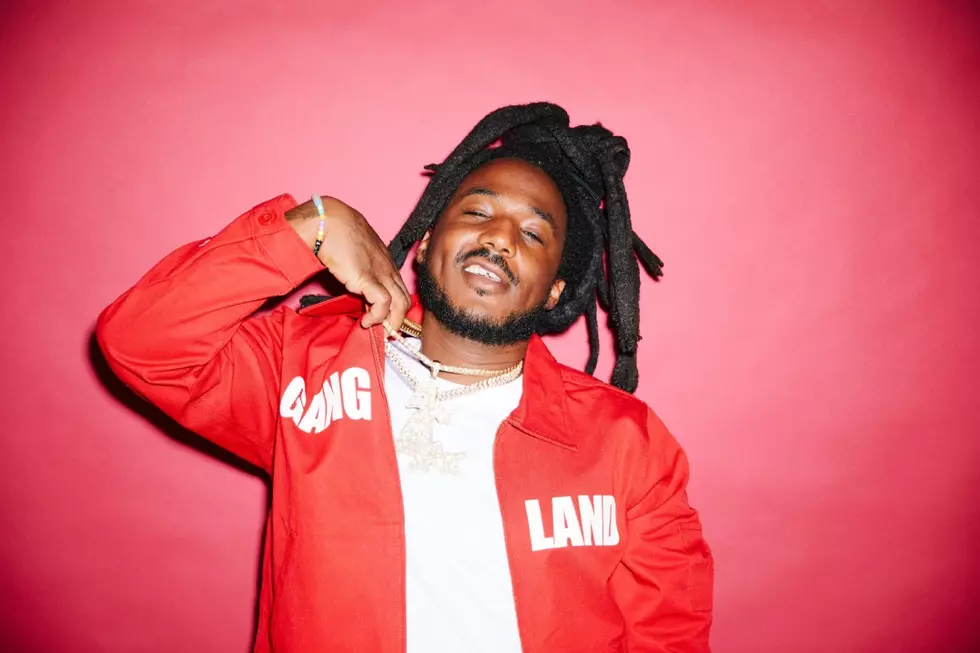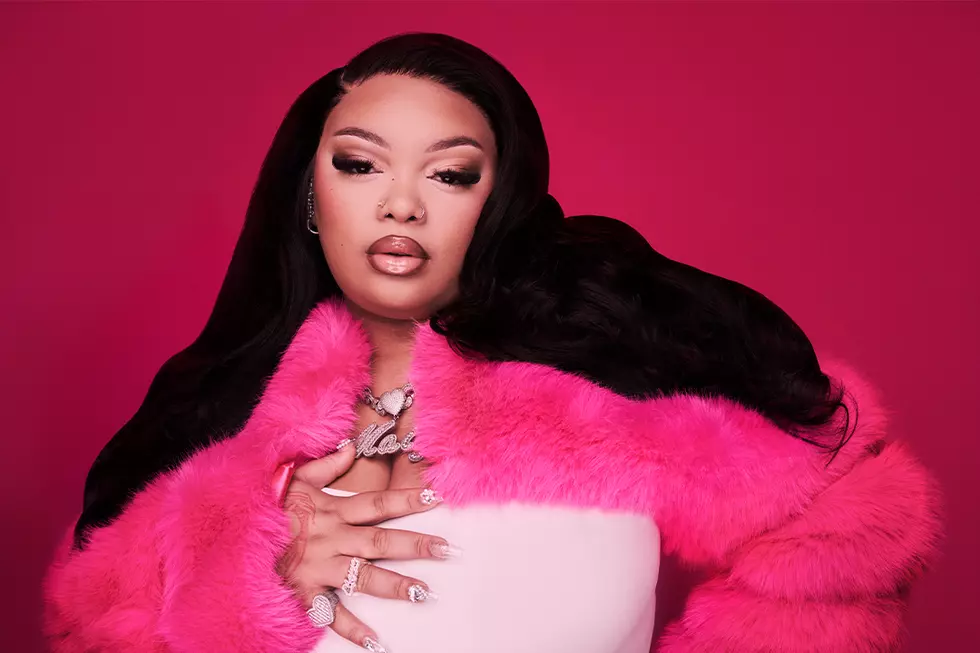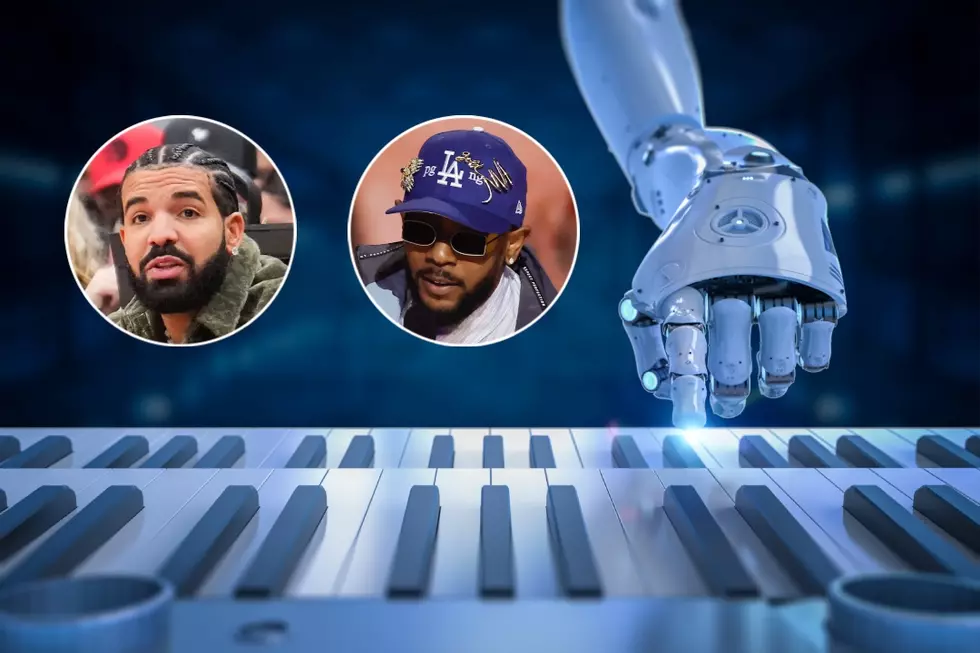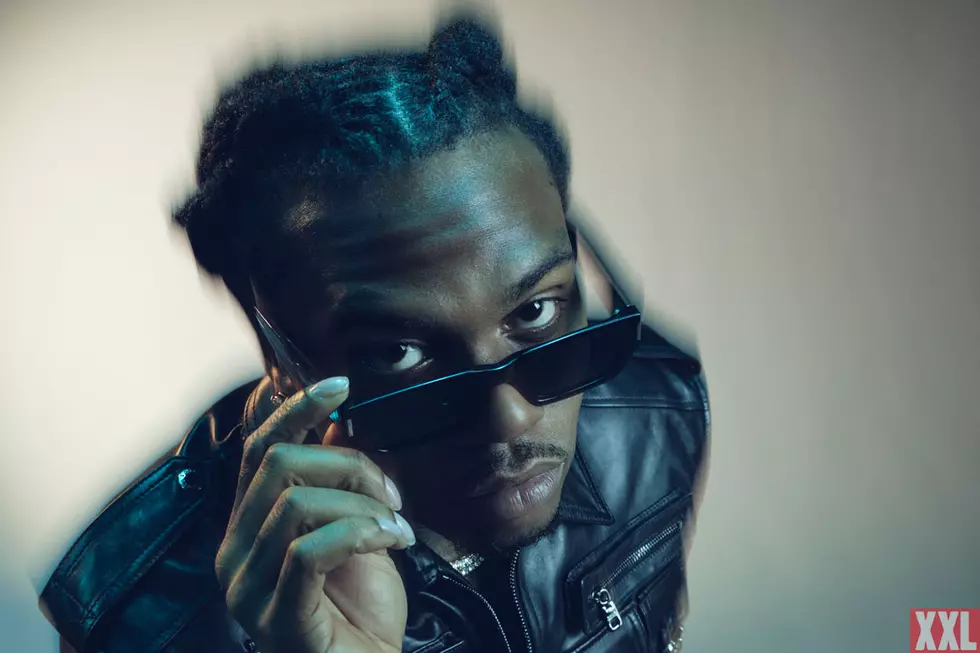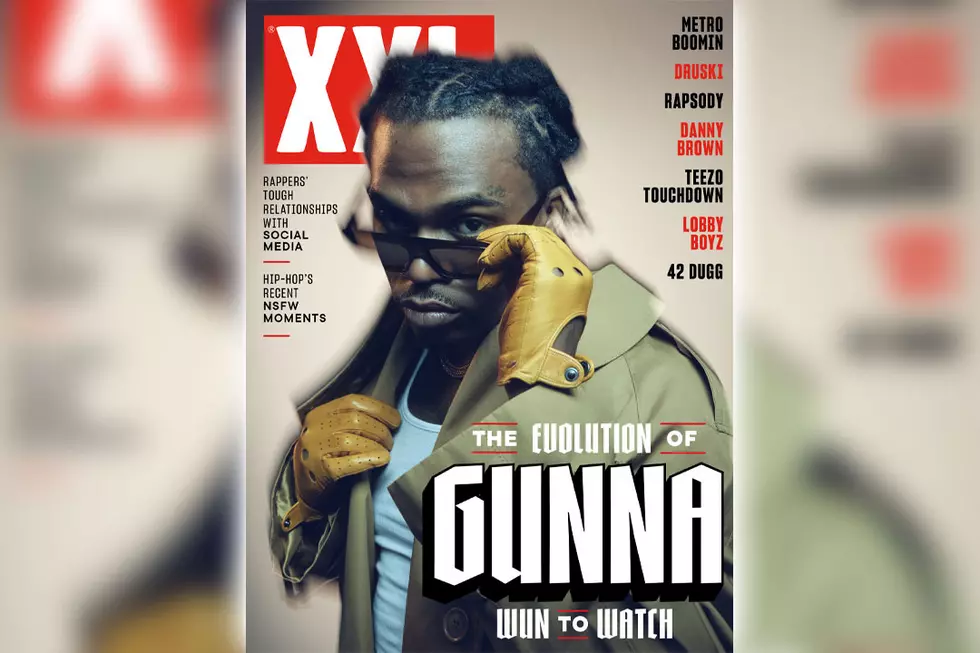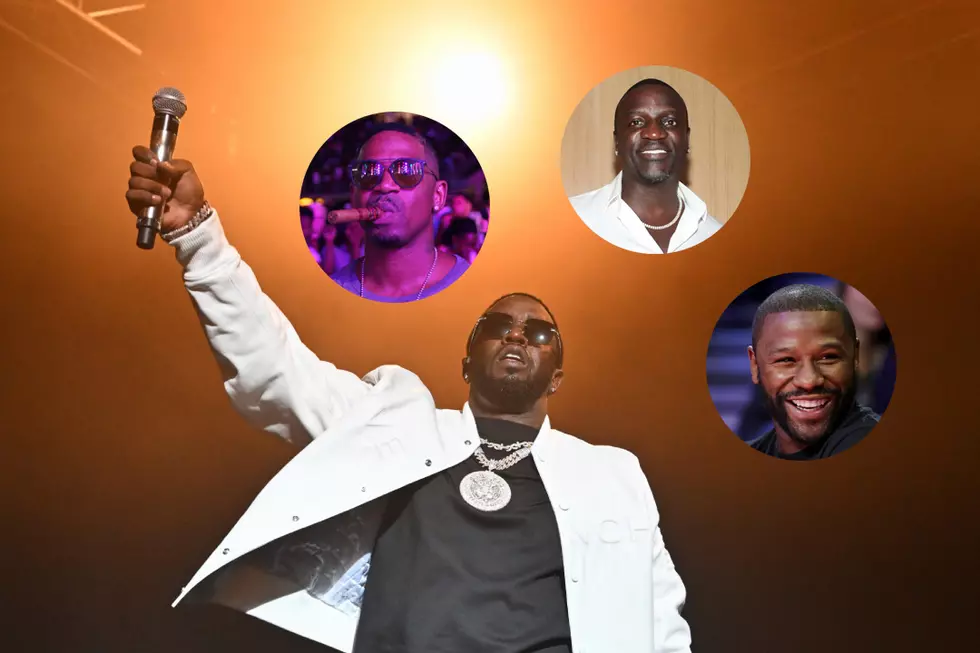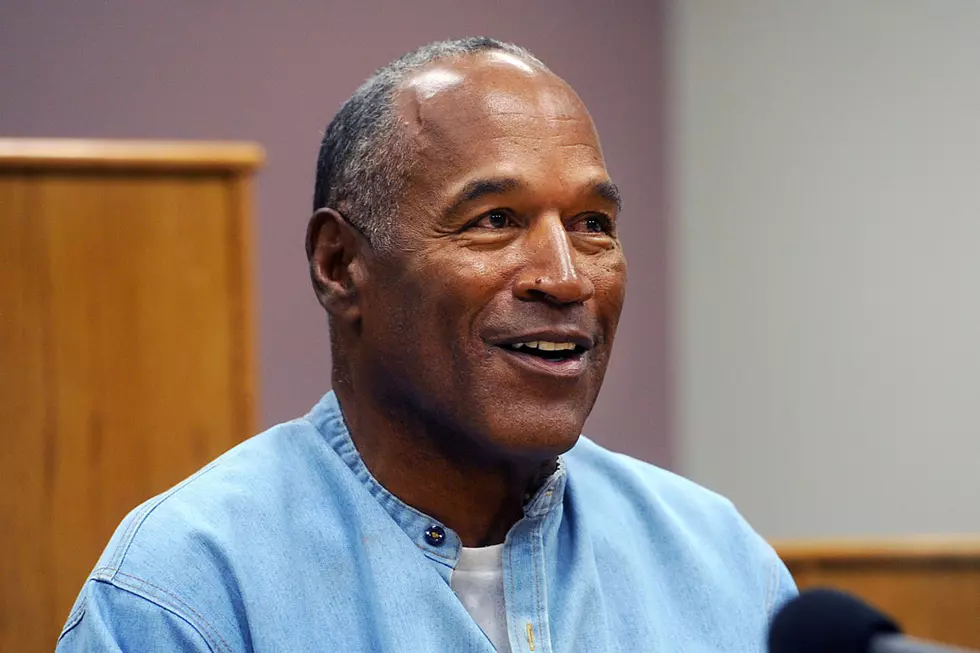Can WorldStarHipHop’s Documentaries Help Save The Inner Cities?
Last week, WorldStarHipHop debuted their new documentary, The Field: Miami, a dive into Miami's inner city neighborhoods through the eyes of many of the local rappers who write about and live within it. The doc is WorldStar's second installment of The Field, after their first documentary, Chiraq, which focused on Chicago, was released in January. Miami, however, doesn't explore the same themes as Chiraq; rather than identifying the issues of the inner city neighborhoods and seeking a way to help, Miami instead shines a light where the glossy high beams of South Beach don't quite reach, identifying and pointing out the city's issues rather than documenting the efforts to help and correct the projects. It's almost like the point is that Chicago is further along than Miami; that Miami is where Chicago was a decade ago, before the national media began to take notice. The infrastructure to help hasn't yet come; there's no Rhymefest or community programs highlighted, because there are none to highlight.
That's what Lee "Q" O'Denat, the notorious website's founder and the executive producer of The Field: Miami, says, however, and it's a problem that he'd like to address. There are many glaring issues with the documentary—the complete and total lack of female rappers or influences, for one; not a single serious mention of Miami's massive Cuban population, for another—but it's that lack of saving graces for the city's many rough neighborhoods that sets Miami apart from its predecessor. And it's that which drew Q to Miami for his series' second episode.
Whether or not WorldStar—which has forged its reputation posting videos of fights and brawls and the underbelly of urban society—can exact change through its documentaries remains to be seen. But with further plans for a third doc—said to be centered on Memphis, though Oakland is also a possibility—in the works, XXL spoke to Q about The Field: Miami, the problems and issues that came with making the documentary and its aftermath, and where he sees WorldStar's place in this whole movement to help the projects in cities around the country. —Dan Rys
Previously: WorldStarHipHop’s ‘The Field: Miami’ Documentary Explores The City’s Projects
Chicago Gets Shine In Two New Documentaries, ‘Chiraq’ And ‘The Field’
XXL: Why Miami?
Q WorldStar: With Miami, I felt like it was a good opportunity for a city that’s known for its beaches, and limelight and nightclubs...no one really gets to see outside Ocean Drive and South Beach, so I feel like their story needs to be told. The hip-hop scene is pretty dope there. They got their own unique sound; they’re really passionate about their own city. They notice that people go to Miami just to party and South Beach to get out, but they feel like they’ve been overlooked, as far as their own city outside of South Beach.
We went to each area trying to find out who’s the dopest. The streets have their top pick, you know—Ice Berg is one of them—just put some names out and interview 'em’ 'cause we wanted that real authenticity of that street life. You know, they really living that life. You know a lot of these artists today, they studio gangstas. So it felt great to hear their story, as well as listen to their music. One of the producers of the show lives in that area so he was definitely an A&R in the streets for us and he recommended a bunch of artists. 'Cause I don’t live in South Beach, so he was giving us a bunch of names—who is relevant, what’s going on, what’s buzzing in the streets—and that helped us out a lot. Plus, the director [Mandon Lovett] is from Miami as well. So it was a good combination of great talent and great creative minds working together.
When did you start the Miami project?
It took us a couple of weeks to complete it, but we started in February, February or March we started filming. We kept going back and forth with the edits. You know, get a feel of that realness. And it took us a while but we finally came to a happy ending with the final edits. We're looking to launch Aug. 18.
When you first conceived of the Miami documentary, what was the end goal for it?
Just to get their voices heard, you know? Bring awareness out to the community leaders, showing that these kids rely on the guns and the violence to get through the night. So it’s great to be able to showcase their talent but get a story as well on what’s going on in their communities, which gets overlooked a lot, because when people think of Miami they think of South Beach immediately. I felt like it was our job as leaders of an entertainment space like WorldStarHipHop, to go out there to do some kind of Vice thing; you know, go out and do some investigation of our own and talk to these inner city kids in Miami and put it out, broadcast it out. Show the world.
So it was about focusing on the projects through the rappers’ eyes type of thing?
And also capturing—'cause in every inner city, hip-hop is a major influence, so it felt like you’re killing two birds with one stone. So we’d get the untold story of what’s happening and the talent from the artists. I think the combination is great, because a lot of these artists are dope but they don’t get seen or heard because MTV or Power 99 isn’t playing their music.
One of the things I took away from the film was that story that was told right at the beginning, which was almost word-for-word the story that was told in Chicago—some of the older hustlers, older gangsters that were, yeah, running the drug game, but also helping provide structure and give back to the community, all got arrested, and it just left a void. Does that seem striking to you, that they’re two completely different places with different problems, but it’s really the same problem?
I mean it is shocking to know what’s going on outside in their own backyards, literally across the street or a couple miles. You get to see what’s going on and the arrests are growing big in their area, so it’s shock value to see that. I think what we could bring to the table is make sure the community leaders can help these kids out, you know, create community centers and try to help them get out the street. It takes one step. If we just continue to put a naked eye up, there’s no sense of future for these kids. It seems like—I feel like they do want to get out, you know? They want a chance and no one's giving them that chance to be heard and I thought as artists we have that vehicle to do that. Why not use our strength and our power to do so? Being in the state that we are as WorldStarHipHop, we have the power to help a lot of people and give back to our communities, and it feels good to do that.
One of the things I appreciated about your Chicago documentary was the section on Rhymefest, kind of talking about how people are trying to give back and help educate. There wasn’t really any of that in the Miami one. Is that because it doesn’t really exist in that type of way?
I mean we got the old school—the OGs like Uncle Luke and Trick Daddy speak up, they play a good role in speaking up. I’m sure they’re telling their followers, kind of like Rhymefest did for Chicago. They just need someone to look up to, and they respect Uncle Luke and Trick Daddy 'cause they’re so passionate about their city. So they’re like their role models in which they look up to. Locals in Miami look up to those guys a lot.
I just feel like when you compare that to someone like Rhymefest and what he's doing for Chicago—maybe it’s not a direct comparison at all—but there’s not really that role model in a sense.
Yeah, there’s no one like Rhymefest. Rhymefest, he’s definitely a community leader, and he leads by example, not just talking it but he’s actually showing action with the words. That’s one of the big things [why we went] to Miami—to get the their voice heard, 'cause with Chicago with the murder rate so high and the nickname “Chiraq," it was definitely a no-brainer to go there first. Before we went to Chicago we thought about going to a lot of major cities and tackling the same issues, and Miami was one of the second cities to talk about because, again, everyone goes to Miami but nobody ever talks about those cities outside of South Beach.
I know that you hear all the criticism of the lack of female rappers. There was also only one mention of the Cuban community at all, a throwaway about how the government helps them out. Was that a conscious decision to leave them out, or was it just like, "Oh, shit"?
I mean, we’re still learning. It’s our second installment, so we take notes every time we do a project like this. We notice that we have to get some female rappers. You know, we missed interviewing Trina, which is a no-brainer, but we missed it. Our first installment was Chicago, which was half the length; Miami was nearly an hour, as far as final edits. We feel like on our next projects, we’re gonna have to fill those gaps in our first two and we wanna go head and add on to it.
Is some of that just spending more time or resources on it?
No; our first project with Chiraq, it was just three or four of our team going out there and filming and doing a report. For Miami we had an actual producer, and we had some really good information, and a lot of artists came to us and we couldn’t put all them in, but we had to take a step back and say, “Okay, we need to get a female rapper and try to enlighten everyone, not just the boys in the inner city who want to enlighten the females, because they’re also struggling just as bad."
Is there a part that you look at and say, “Ah I wish we did that better,” Or, “Ah, we kind of missed that.”
I wish we would have had the artists walking to South Beach and the reaction of them being themselves and look at how they’re being harassed, so people get a first-hand look at what’s going on instead of them showing in their community of them being themselves and not crossing that line to South Beach, to Ocean Drive and seeing what the reaction would be.
Why Memphis next?
We debated with Memphis. Memphis is one of the three cities we’re debating about. With Memphis we’ve got a good connection with Yo Gotti and a lot of the local artists. That looks like it may be the next city, but we’re also looking at Oakland. Oakland looks like a place where we could get that West Coast feel, with Tupac—you know there’s a lot of rich history in that area. You know Oakland, that’s crazy. I remember me growing up in the '80s hearing about Oakland, MC Hammer—you know there’s just so much story to be told there, so I’m debating between those two.
What was the biggest thing you learned through the process of making this one?
That what we’re doing is a good cause. What we’re tackling right now, it’s the beginning of something uniquely different, which I think hip-hop needs someone to take lead of this, 'cause no one’s gonna do it for us. CNN, Fox is not gonna do it, so it’s good to see that hip-hop is stepping up and taking care of our own. We come from that area. You know a lot of that culture that we talk about and rap about is where we come from and a lot of people who leave that still talk about it. But then they forget about the ones still living there. You know what I’m saying? So, I think it’s very important that what we’re doing right now is a steppingstone to something bigger and brighter in the future.
What do you see that “bigger and brighter” as being?
More jobs, creating more community centers, doing more events there, maybe [giving awat] some backpacks....you know, help the kids out. Maybe start setting up where they start talking. Maybe have charity events, just have people engage with other artists that made it out there or political leaders to come and talk to them, you know, give them hope. I think that’s good. People can go hear someone talk that come from your area, come from your city and say, “Hey man, I come from where you from, I come from your city. I know what you’re dealing with," and speak up. Instead of a teacher that says, “Hey go to school, read, study." They’ll say, “Hey man, you don’t know where I’m from. You go home to the hills.” They can’t relate. I feel like it’s important to start with that. That’s what my future ultimate goal is, to come out there, revisit the area and then try to bring in leaders to talk with the kids.
It takes steps, and I’m willing to take the first base step. And I know that what we’re doing is gonna have a bunch of followers supporting [us] once we put that out there, and people like yourself who’s supporting and then writing up good stories and talking about it. It’s gonna make people want to engage in something bigger and better next time and I think it’s important to have you guys involved as well; that’s why I spent all day doing press. I think it’s very important to get the word out and that could help us and eventually help these kids. I wanna tackle all these big cities then go international
Looking around at Memphis or Oakland, do you start to see a pattern of how the inner city is being dealt with from the outside?
I mean, the guns is what really makes me feel hurt inside, 'cause you know these guns—I’d rather them fight than just pull out a gun. Guns...there’s no turning back from that, you know what I’m saying? You get beat up, you just get up...you’re getting an ice pack and then going to work the next day. But if you shoot somebody and end his life, there’s no turning back. These guys have Uzis and M-16s, not little handguns. The guys are like commando, Rambo 2. It’s crazy. I’m like, how are these guns getting out here? I’m not an expert, but it’s something that needs to—someone needs to step up and I feel like it’s our jobs as leaders of the entertainment space to do that.
How does that fit in with the reputation of WorldStar?
I mean, I think it’s balanced. We’re gonna still be who we are, 'cause our audience grew organically. They love that we keep it real and they love that hip-hop flavor as well. You know we love to see the violence, the sex, the funny...you know, just that wild shit, so we don’t wanna lose that. But I also feel like we could add to it. It’s like you have your Common, your Ice Cube, you have your variation where you can get balance and that’s what we do. We bringing balance to the team.
On a personal level, what do you think about the fact that the first time something happens or someone gets into a fight, the first thing everybody yells is "WorldStar!"?
I mean, it’s a compliment. It’s like a battle cry. All them people are like, “See, I told you WorldStar’s awesome.” I feel it and I’m also happy, but then again it’s like before WorldStar in '04/'05 it was YouTube, Facebook and no one said anything. And now it’s like, “WorldStar, oh, WorldStar’s the devil.” I get it, I understand, but it feels good that they’re saying that, not just in a negative format. You know if something funny happens, if someone slips and falls or if something crazy happens, it’s like, “Oh, WorldStar!” It is what it is, there’s nothing I can do about it.
More From XXL

